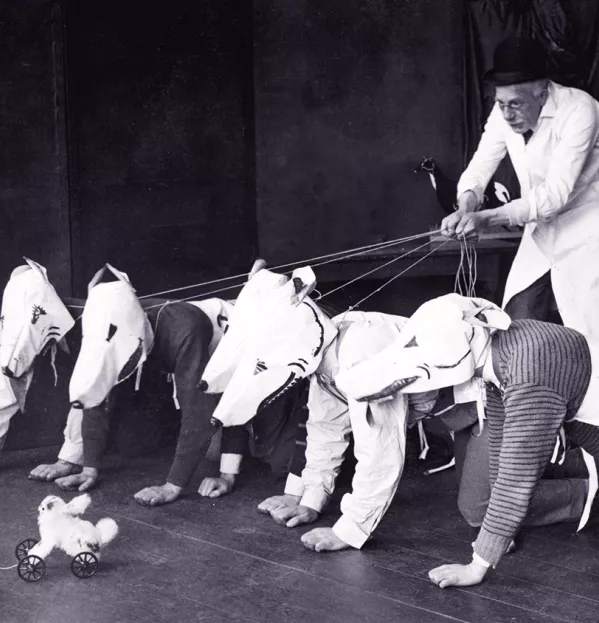How to unleash subject leaders

At the start of my teaching career, departmental meetings were relatively short affairs. We spent them having a bit of a moan about our days and then looking through some upcoming lessons.
As a new teacher, the time spent looking over the lessons was invaluable, as it meant that I could draw on the experience of others in the department, get an idea of the misconceptions pupils were likely to have and hear how to explain difficult concepts.
Over time, meetings became longer, but sadly less useful. The problem was that, as accountability measures increased, meetings became more focused on administrative tasks. Agendas filled up with action points from various members of the senior leadership team. The responsibility for developing departments slowly moved away from middle leaders and increasingly became a whole-school responsibility.
I am happy to say that the tide now seems to be turning back again.
There is a growing realisation that continuing professional development needs to be subject-specific. And in many schools, we are seeing an increase in the amount of time being given back to departments, with meetings and Inset days being left at the discretion of middle leaders.
But how do we make the most of this time to develop the team?
1. Shift the admin
The first step is to clear the agenda. I have found two effective ways of doing this. Firstly, put all the admin into an email. Send just one email at the start of the week with everything that people will need to know for the meeting, as well as any requests for information with deadlines. Secondly, set your agenda well in advance and send it to your line manager plus any other members of the senior leadership team. Any last-minute requests to add other actions will then have to wait until the following week’s email.
2. Associate with your association
Once you have cleared your departmental meeting time for staff development, you can start to use the time more meaningfully. With more rigorous GCSE and A-level exams comes an increasing need to develop our own subject knowledge. The problem has always been that, between planning lessons and marking books, there is precious little opportunity to sit and read. Departmental meetings are the perfect time to read an article from your subject association’s journal over a cup of coffee and then spend a while discussing its implication for your teaching.
3. Read research
As well as subject-specific material, there is also a wealth of useful information out there on other aspects of effective teaching and learning. I recommend Rosenshine’s Principles of Instruction, Dunlosky’s Strengthening the Student Toolbox, Mayer and Anderson on dual coding, and Meyer and Land on threshold concepts - all challenge our conceptions about effective teaching. The advantage of going to the source of these ideas is that you can work out, as a department, how best to apply them rather than relying on more generic strategies coming out of whole-school CPD input.
4. Build a common culture
It is far more efficient to share out the planning load rather than each person in your team planning every lesson themselves. But sometimes a person in the team may believe that they have a completely unique teaching style that means they can’t teach a lesson someone else has planned. The solution is to spend some of your meeting time looking at what people consider to be effective parts of a lesson and then building common ground.
To do this, I use a card-sort of a wide range of possible components of an effective lesson. We place these cards on a grid with one axis running from “effective” to “ineffective”, and the other from “often used” to “never used”. This leads to interesting discussions about what we want a lesson to look like and makes it much easier for us to plan together.
5. Teach each other
Of course, it doesn’t need to be the head of department who leads every session. Departmental meetings are a great time to teach each other. Perhaps one person knows more about long-term climate change, or 19th century literature or working with clay. Ask them to prepare a quick masterclass on their area of interest and to explain how they use this knowledge or skill in the classroom.
One concern about handing more time to middle leaders to develop their teams is that this would become another time-consuming task placed upon those who are already the most overburdened. For this to work, you need time to find these articles, to read the research, and to prepare the discussions and activities. It is important that middle leaders work with the senior leadership team in finding more time to do this.
Go to them with a plan that shows how this will have an impact.
It will certainly have more of an impact than yet another meeting spent shifting data from one spreadsheet to another.
Mark Enser is head of geography at Heathfield Community College. His first book, Making Every Geography Lesson Count, is soon to be published by Crown House. He tweets @EnserMark
You need a Tes subscription to read this article
Subscribe now to read this article and get other subscriber-only content:
- Unlimited access to all Tes magazine content
- Exclusive subscriber-only stories
- Award-winning email newsletters
Already a subscriber? Log in
You need a subscription to read this article
Subscribe now to read this article and get other subscriber-only content, including:
- Unlimited access to all Tes magazine content
- Exclusive subscriber-only stories
- Award-winning email newsletters